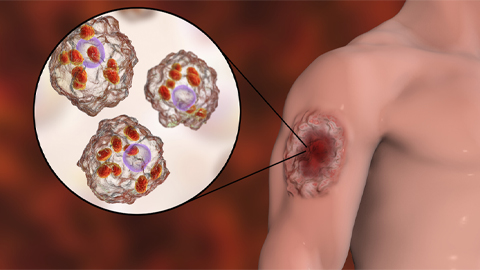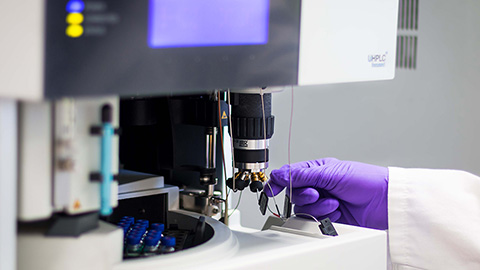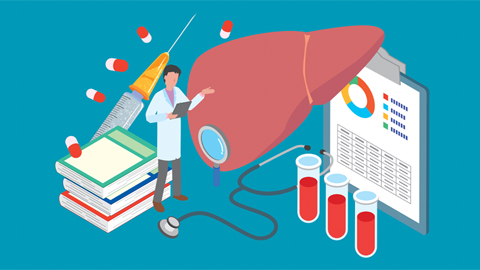Q&A with the ORI’s Kathy Partin
Throughout this series, I hope I have conveyed the importance of performing your due diligence when it comes to data presentation. For my final column, I asked Kathy Partin, director of the Office of Research Integrity, or ORI, to share her thoughts on questions you may have had while reading the series. For those not familiar with the ORI, this government agency oversees and directs U.S. Public Health Service research integrity activities. Partin, who joined the ORI in December 2015, will be detailed to the Uniformed Services University of the Health Sciences in early December. Her responses have been lightly edited for length and style.
 Kathy Partin is director of the Office of Research Integrity, the government agency that oversees and directs U.S. Public Health Service research integrity activities.courtesy of kathy partin
Kathy Partin is director of the Office of Research Integrity, the government agency that oversees and directs U.S. Public Health Service research integrity activities.courtesy of kathy partin
What are questionable research practices? Is there a way to easily spot these? How should these be handled by individuals?
Questionable research practices, or QRPs, are those that fail to conform to well-accepted best practices and lead to lack of rigor and reproducibility but do not rise to the level of data falsification and/or fabrication. Examples could include the use of inappropriate controls, neglecting negative outcomes or using inappropriate statistics to support a hypothesis. These practices are not necessarily easy to spot, but they tend to be obvious with appropriate oversight, such as when one regularly compares raw data to analyzed data. Many believe that a nonrigorous laboratory culture can lead to a slippery slope that will allow trainees to more readily make decisions about data acquisition or publications that could include misconduct. When lab members see questionable research practices, it is important to consider whether the training missed critical elements and to assess if there is adequate supervision. On the other hand, if a trainee continues to engage in questionable practices, despite good training, it might be appropriate for lab members to scrutinize the data for possible misconduct.
What are your recommendations to students/postdocs if they believe they are witnessing research misconduct?
Each of us plays a role in setting the ethical climate of the research environment, and with that comes the responsibility of taking appropriate action. If you see something, say something. However, it is important to understand that saying something sometimes puts the complainant at risk. Sometimes the complainant believes there is misconduct when there is not. Ideally, trainees have a trusted mentor to help think through potential explanations for what is being observed. A mentor can be sure a trainee understands the implications of alleging misconduct, particularly against his or her research advisor.
If someone suspects misconduct and doesn’t have anyone to talk to, there are options to consider. Read the institution’s research misconduct policy. Consider contacting the institution’s research integrity officer or the ORI with questions or hypothetical scenarios. Many institutions use anonymous hotlines. It is generally wise to avoid direct confrontation with the person, such as accusing him or her. It is a good idea to document details related to the possible misconduct. The time may come to make an official allegation, and then consulting with the research integrity officer is essential.
How should mentors handle suspected research misconduct in their laboratory or department?
Mentors might think that they have an obligation to investigate at the first inkling of a problem. Not true. It is better to take even early concerns to the research integrity officer so any steps taken will comply with regulations and ensure a fair process. Often, allegations can be handled more efficiently and even dispelled when the integrity officer is consulted early. Documenting concerns, including information about hard drives, file names, notebooks, dates and locations, is very helpful. Mentors who investigate outside the institutional process risk unnecessary disclosure of allegations. Confidentiality is critical to protect both the complainant and the accused. It is everyone’s responsibility to ensure the integrity of research, but we must also protect others from being unfairly identified as performing misconduct. The key is to take action but discuss your concerns only with the appropriate institutional officials, such as the dean or research integrity officer.
What can mentors do to prevent questionable research practices or research misconduct in their laboratory?
Effective mentoring is key. In any mentor-mentee relationship, mentors accept responsibility for ensuring that their mentee is adequately trained and supervised. A critical responsibility of a good supervisor is effective communication before, during and after experiments are performed. Good supervisors are respectful of their trainees, supportive, available, prepared and honest. Supervisors need to be sure that they properly instruct on research methods, convey responsible research practices, foster intellectual development and routinely check that the trainee is following through with what has been taught. A good mentor-mentee relationship creates an invisible safety net for the entire research group.
Certain terms are often heard, such as research misconduct, ethics violations, unethical behavior and fraud. Can you elaborate on these terms? Are there differences in how an institution may handle these versus the ORI?
There is definitely some confusion about terms. From the federal government’s perspective, there is only one definition of research misconduct: “fabrication, falsification, or plagiarism in proposing, performing, or reviewing research, or in reporting research results.” Institutions may have a much broader definition and might include terms like “serious deviation from accepted policies,” misappropriation, misrepresentation, etc. An institution may make a finding of misconduct based on its broader definition, and the ORI will not because we are statutorily required to use a narrower definition. Globally, other countries and institutions also have widely varying definitions of research misconduct. Private foundations or sponsors of research might have their own terms that govern what an institution must do if research misconduct is alleged.
Are there agencies like the ORI in other countries? Does their definition of research misconduct differ from the ORI’s?
Yes, there are regulatory agencies in Europe, Asia, Africa and North and South America that govern how research misconduct is adjudicated. Not only do definitions of misconduct vary, but the processes that govern the handling of allegations also vary widely.
Recently, countries have been forming networks of research integrity officers to share best practices and novel approaches and also to begin to think about how to harmonize some of the practices. The ORI collaborates and communicates with such associations as much as possible.
How does our current incentive system play a role in research misconduct or QRPs?
There are those who believe that the competitive nature of funding and publishing decisions forces perverse incentives for success. Ultimately, good research requires rigor and integrity. Trainees who are going to be successful, productive scientists and who are resilient in the face of challenges must understand that the foundation of success in research is research integrity. Trainees must believe that quality of research, not quantity, is what is needed for a successful career. Quality research comes from places that value research integrity; trainees should think about the climate of the lab they might select as well as the quality of the research being done.
Enjoy reading ASBMB Today?
Become a member to receive the print edition monthly and the digital edition weekly.
Learn moreGet the latest from ASBMB Today
Enter your email address, and we’ll send you a weekly email with recent articles, interviews and more.
Latest in Science
Science highlights or most popular articles

Iron could be key to treating a global parasitic disease
A study has found that leishmaniasis causes body-wide changes in iron balance, leading to red blood cell damage.

Environmental DNA is everywhere
The ability to extract trace bits of DNA from soil, water, and even air is revolutionizing science. Are there pitfalls?

Early COVID-19 research is riddled with poor methods and low-quality results
The pandemic worsened, but didn’t create, this problem for science.

From the journals: MCP
Three views of mass spec: analyzing secreted protein spectra, imaging mass spectrometry for clinical use and spectral libraries for MS data analysis. Read about these recent papers.

Understanding the fat science
Researchers at UCLA investigate lipid remodeling in the liver for energy generation.

No oxygen? No problem
By studying how electric fish survive in hypoxic streams for months at time, researchers may find new ways to target tumors.

